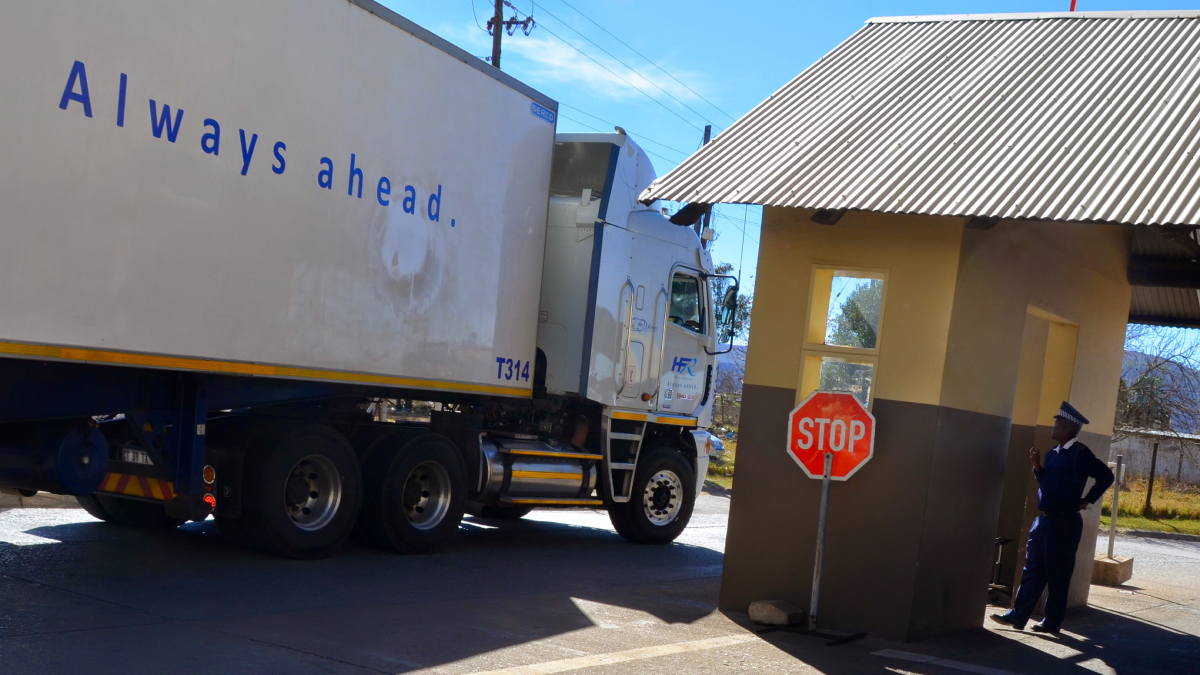UNCTAD and the five UN regional commissions join forces to help developing countries tackle trade and transport challenges from the coronavirus pandemic.

A new joint UN project is seeking to help governments and businesses keep transport networks and borders operational and facilitate the flow of goods and services, while containing the spread of the coronavirus.
The project launched this month will implement UN solutions, standards, guidelines, metrics, tools and methodologies to help developing countries build transport, trade and logistics resilience in the wake of COVID-19.
The initiative brings together UNCTAD and the five UN regional commissions for Africa (ECA), Europe (ECE), Latin America and the Caribbean (ECLAC), Asia and the Pacific (ESCAP), and Western Asia (ESCWA), with funding managed by the UN Department of Economic and Social Affairs.
The project puts a premium on global reach and regional presence, international cooperation, as well as exchange of knowledge and good practices from all over the world.
It seeks to equip governments in developing and least developed countries to adapt to new post-COVID-19 conditions by tapping into UN expertise, standards, tools and guidance, while considering their specific and local conditions.
Three clusters
It comprises three clusters designed to match existing and emerging standards and best practices in transport and trade facilitation with new concerns and demands arising from COVID-19 on cross-border freight transport operations and trade transactions.
The first cluster focuses on contactless solutions and good practices. It aims at reducing physical contact among people in cross-border supply chains by facilitating the flow of goods without spreading the virus.
This will be done by implementing UN conventions and standards for seamless harmonized electronic exchange of data in digital transport corridors, border crossings and trade operations, as well as developing smart rail and road connectivity.
The second cluster is geared towards maximizing seamless connectivity. It focuses on eliminating obstacles to cross-border trade and transport operations arising from the COVID-19 crisis.
It aims at promoting synergies among border agencies by empowering national trade facilitation committees, improving customs automation and identifying non-tariff barriers.
The third cluster focuses on collaborative solutions on transport, trade and logistics operations by strengthening regional and sectoral cooperation to facilitate joint actions and solutions in responding to the COVID-19 pandemic.
It will give special attention to international transit issues, which are multilateral, and sectoral cooperation for ports as nodes of the global maritime shipping network, rooted in regional and national contexts.
Proven conventions and tools
The three clusters build on the UN’s proven conventions, standards, tools and instruments, such as UNCTAD’s Automated System for Customs Data (ASYCUDA), the eTIR International System (TIR Convention) carnet and trade data exchange standards of the UN Centre for Trade Facilitation and Electronic Business (UN/CEFACT), as well as the Framework Agreement on Facilitation of Cross-border Paperless Trade.
The clusters will also tap into regional intergovernmental cooperation platforms, analytical work and capacity-building programmes of the five UN regional economic commisions.
One UN response
The project responds to the UN Secretary-General António Guterres’s call for action to tackle the many socio-economic dimensions of the COVID-19 crisis.
It seeks to make a difference in line with the UN framework for the immediate socio-economic response to COVID-19 calling for improved connectivity and lower transaction and transport costs.
It lies at the heart of UN efforts to implement solutions for contactless, seamless and cooperative transport and trade.
These efforts are expected to promote prosperity, help national economies recover better from COVID-19 and accelerate progress towards the Sustainable Development Goals.


